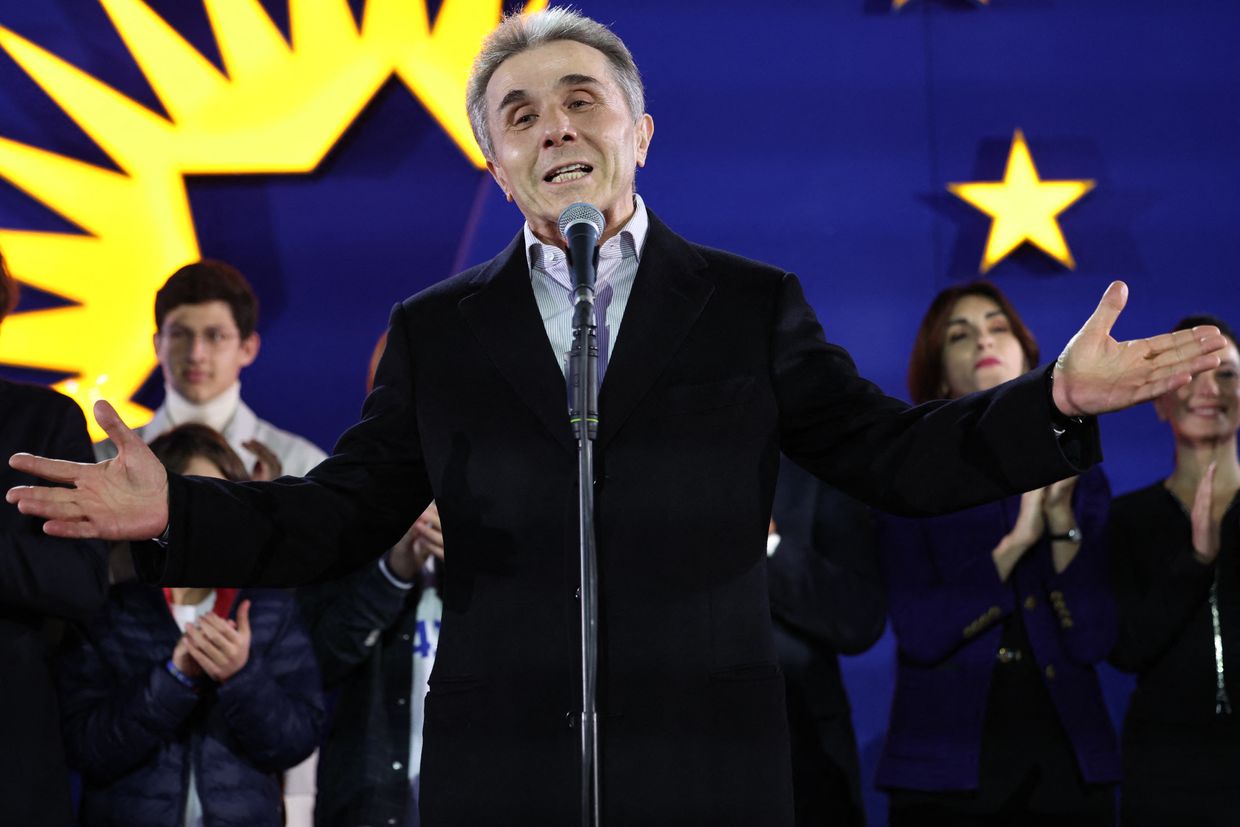Georgia's accession to EU has been suspended due to actions of Georgian government

The process of Georgia's accession to the European Union has been suspended due to the actions of the Georgian government since the spring of 2024, the European Commission announced on Oct. 30.
The decision comes after the ruling pro-Russian Georgian Dream party won a majority in the Oct. 26 parliamentary elections. Pro-EU parties have disputed the result, and European monitors also said the elections were characterized by intimidation and irregularities.
Although Georgia received EU candidate status last December, the accession process has been "de facto halted due to the course of action taken by the Georgian government since Spring 2024," the European Commission's statement read.
A joint International Election Observation Mission led by the OSCE Office for Democratic Institutions and Human Rights (OSCE/ODIHR) identified "several shortcomings that occurred in a tense and highly polarized environment."
Among the shortcomings, the European Commission singled out the recent legislative amendments to the election process, frequent compromises on vote secrecy, procedural inconsistencies, intimidation, and pressure on voters that negatively impacted public trust in the process.
The European Commission also insisted on the need for comprehensive electoral reform, which has already been mentioned in the body's previous key recommendations.
Pawel Herczynski, the Ambassador of the European Union to Georgia, also confirmed the suspension of the country's accession to the European Union.
"Due to the course of action taken by the Georgian government, EU leaders stopped Georgia's accession process. It remains on hold as long as Georgia continues to move away from the EU, our values, and our principles," Herczynski said.
Herczynski said that the Georgian authorities have not demonstrated "sufficient political will" to implement the necessary reforms on the path to EU membership.
Referring to the latest EU Enlargement Report, the ambassador mentioned that Georgia has lagged behind in steps related to combating disinformation, political polarization, elections, and human rights. There has also been a setback in the judicial system, which Herczynski called "unprecedented" for an EU candidate country.
"What's next? The future of EU-Georgia relations is now in the hands of the Georgian leaders," he said.
The Georgian Dream party, founded by oligarch Bidzina Ivanishvili, has led the country closer to Moscow while curbing its EU aspirations. Tbilisi's adoption of the controversial foreign agents law earlier this year sparked mass demonstrations and led to the EU effectively freezing Georgia's accession process.
After the results of the Oct. 26 vote were announced, Georgian opposition groups refused to recognize the result and said the election was stolen, pointing to election monitors reporting numerous violations across the country, including ballot stuffing and voter intimidation.
Prime Minister Irakli Kobakhidze said on Oct. 27 that the Georgian parliament will approve the government despite the opposition's protests.













